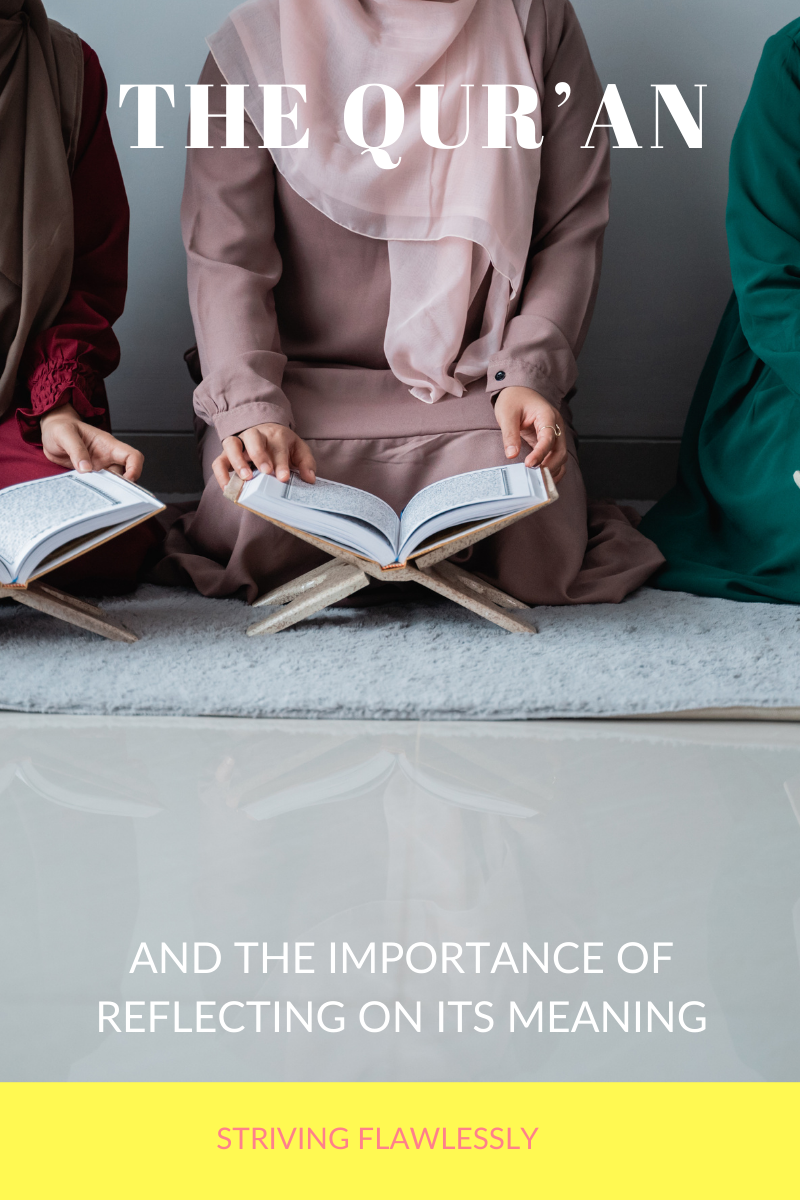|
By: Zaghra savahl and gina klaff The Qur'an, which was revealed to Prophet Muhammad (SAW) through the Angel Jibreel (AS), serves as a gift to humanity – a source of guidance, healing, cure, and infinite blessings. Together with the Hadith and Sunnah (sayings and actions of Prophet Muhammad (SAW)), Muslims reflect upon its meaning and wisdom to attain a fulfilling life and prepare for the Hereafter. “(Here is) a Book which We have sent down Unto thee, full of blessings, That they may meditate On its Signs, and that Men of understanding may Receive admonition.” (Chapter 38 Ayah 29) The Holy Qur'an The revelation of the Qur'an took place in stages, spanning over approximately 23 years and coinciding with various incidents. These incidents provide context to the Ayahs (verses) as it was revealed. These Ayahs are the direct words of Allah (SWT) that has remained unaltered since its revelation. In its sacredness, these Ayahs provide holistic benefits to those that not only recite, but also contemplate its meaning. The Qur'an contains 114 Surahs (chapters), each divided into Ayahs. Muslims cite the revelation of the Qur'an, that first occurred during the month of Ramadan, as the most important miracle in Islam. It serves as proof of the Prophethood of Muhammad (SAW) who Muslims believe was the greatest human to walk the earth. They follow his Sunnah (ways and practices) to achieve piety and closeness to Allah (SWT). In this way, the Qur'an can only be fully understood together with the Hadith and the Sunnah. Although the Qur'an was first revealed orally, it was only later that the Qur'an was compiled through scribing and memorization as a means of preservation. The first revelation of the Qur'an was the first Five Ayahs of Sural Al-Alaq (Chapter 96): “1.Proclaim ! (or Read !) in the name Of thy Lord and Cherisher, Who created-- Daily Reflection While Fulfilling Salaah (Prayer) To fulfil Salaah five times per day is an obligation for every Mukallaf Muslim. In each unit of Salaah, an Ayah of the Qur'an is to be recited and reflected upon. When done with the utmost sincerity, it nourishes your soul, centers your heart and mind, and brings you closer to Allah (SWT). One of the most powerful and important Surahs is Surah-tul-Fatiha (The Opening), which is compulsory to recite at the beginning of each unit of Salaah for guidance, protection, and cure. Reflecting on the Qur’an can also help you connect with inner self and it can be a source of guidance, meditation, and spiritual enlightenment. The Qur’an is meant to help guide people through everyday life, and therefore reflecting and praying daily can help you become more in touch with your internal self and your surroundings. The World Around Us Everything in the Qur'an provides evidence of what happens in our lives and the universe before, present and in the hereafter. Muslims refer to Islam as a way of life. The Qur'an calls us to ponder upon its meaning and to see the evidence of the Ayahs in the world around us. Consider Surah-an-Nur (The Light) Ayah 44 in the Qur'an: “It is Allah Who alternates the Night and the Day: Verily in these things is an instructive example for those who have vision.” When watching the Night and Day alternate, it reminds us of the existence of Allah (SWT). It also serves as a reminder of how precious time is and the way it works. The Qur'an is therefore also a basis on which to explore the world in terms of science, research, medicine, finance, etc. There are Ayahs that guide us in these areas and in every sphere of our daily life and provide a deeper understanding of important life lessons. Life Lessons The Qur’an provides life lessons that can help you learn how to enrich your life and the lives of others. Through praying and reflecting, you can increase your willpower and self-confidence so that you may succeed in your endeavors because you are also growing in your faith. As for the one who is charitable, mindful of Allah, and firmly believes in the finest reward, We will facilitate for them the Way of Ease. [Chapter 92 Ayahs 5-7] The Qur’an also teaches us to respect others and do what is right. Besides aiding us in having a fulfilling life, by reflecting on the Qur’an we can also learn what it means to be kind and we can make a daily effort to do what is right. Indeed, Allah enjoins justice, and the doing of good to others; and giving like kindred; and forbids indecency, and manifest evil, and wrongful transgression. He admonished you that you may take heed. [Chapter 16 Ayah 91]
0 Comments
Leave a Reply. |
Archives
April 2023
Categories
All
|
WORLDWIDE SHIPPING IS HERE


 RSS Feed
RSS Feed